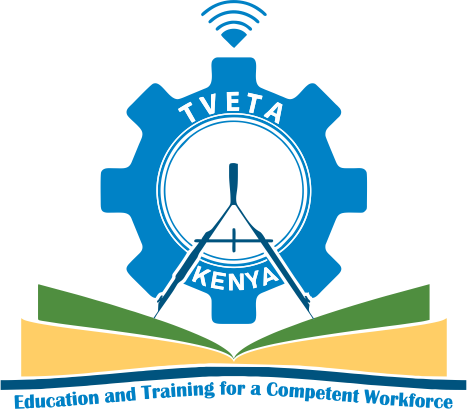History
The establishment of TVET Authority to regulate the Kenyan Skill training system was first proposed in Sessional Paper No. 1 of 2005, A policy Framework on Education, Training and Research.
Technical and Vocational Education and Training Authority is a State Corporation that was established by the TVET Act CAP 210A to regulate and coordinate training in Kenya. It is the successor of the Directorate of Technical Accreditation and Quality Assurance (DTAQA) which had limited functions confined to institutions within the Ministry of Education. The Authority was established to streamline the
regulation of TVET which was hitherto basically fragmented.
regulation of TVET which was hitherto basically fragmented.
Prior to the enactment of the TVET Act CAP 210A, Kenya’s TVET system faced a myriad of challenges among them uncoordinated,
unregulated and fragmented delivery systems that had adverse implications on the standardization of training, cost effectiveness, quality assurance, certification and recognition of prior learning. The diverse TVET management structures and the sharing of supervisory responsibilities by various ministries and government bodies accounted for significant inefficiencies in the TVET system. Duplication and segmentation of TVET created a lack of common platforms for developing coherent standards and joint initiatives in TVET delivery. This necessitated the formation of a body to regulate TVET in the country.
unregulated and fragmented delivery systems that had adverse implications on the standardization of training, cost effectiveness, quality assurance, certification and recognition of prior learning. The diverse TVET management structures and the sharing of supervisory responsibilities by various ministries and government bodies accounted for significant inefficiencies in the TVET system. Duplication and segmentation of TVET created a lack of common platforms for developing coherent standards and joint initiatives in TVET delivery. This necessitated the formation of a body to regulate TVET in the country.
The specific functions of the Authority are outlined in Section 7 of the TVET Act 2013 and captured in section 2.1 of this strategic plan. The Authority is governed by a board appointed by the Cabinet Secretary responsible for TVET, while the day-to-day operations are undertaken by the Management team headed by the Director General. The first TVETA board was appointed on 25th April, 2014. Executive Order No. 1 of 2023 on Organization of the Government of the Republic of Kenya placed the Authority in the Ministry of Education State Department for Technical, Vocational Education and Training.
Functions
The TVET Act CAP 210A prescribes the functions of the Authority shall be to:
- Regulate and coordinate training under TVET Act,
- Accredit and inspect programmes and courses;
- Advice and make recommendations to the Cabinet Secretary on all matters related to training;
- Determine the national technical and vocational training objectives;
- Promote access and relevance of training programmes within the framework of the overall national socio-economic development plans and policies;
- Prescribe the minimum criteria for admission to training institutions and programmes in order to promote access, equity and gender parity.
- Recognize and equate qualifications awarded by local or foreign technical and vocational education institutions’ in accordance with the Standards and guidelines set out by the Authority from time to time;
- Develop plans, and guidelines for the effective implementation of the provisions of TVET Act;
- Establish a training system which meets the needs of both the formal and informal sectors as provided under TVET Act;
- Collect, examine and publish information relating to training;
- Inspect, license, register and accredit training institutions;
- Advise on the development of schemes of service for trainers;
- Assure quality and relevance in programmes of training;
- Liaise with the national and- county governments and with the public and the private sector on matters relating to training;
- Undertake, or cause to be undertaken, regular monitoring, evaluation and inspection of training and institutions to ensure compliance with set standards and guidelines;
- Mobilize resources for development of training;
- Ensure the maintenance of standards, quality and relevance in all aspects of training, including training by or through open, distance and electronic learning;
- Approve the process of introduction of new training programmes and review existing programmes in Technical and Vocational Education and Training Board institutions;

